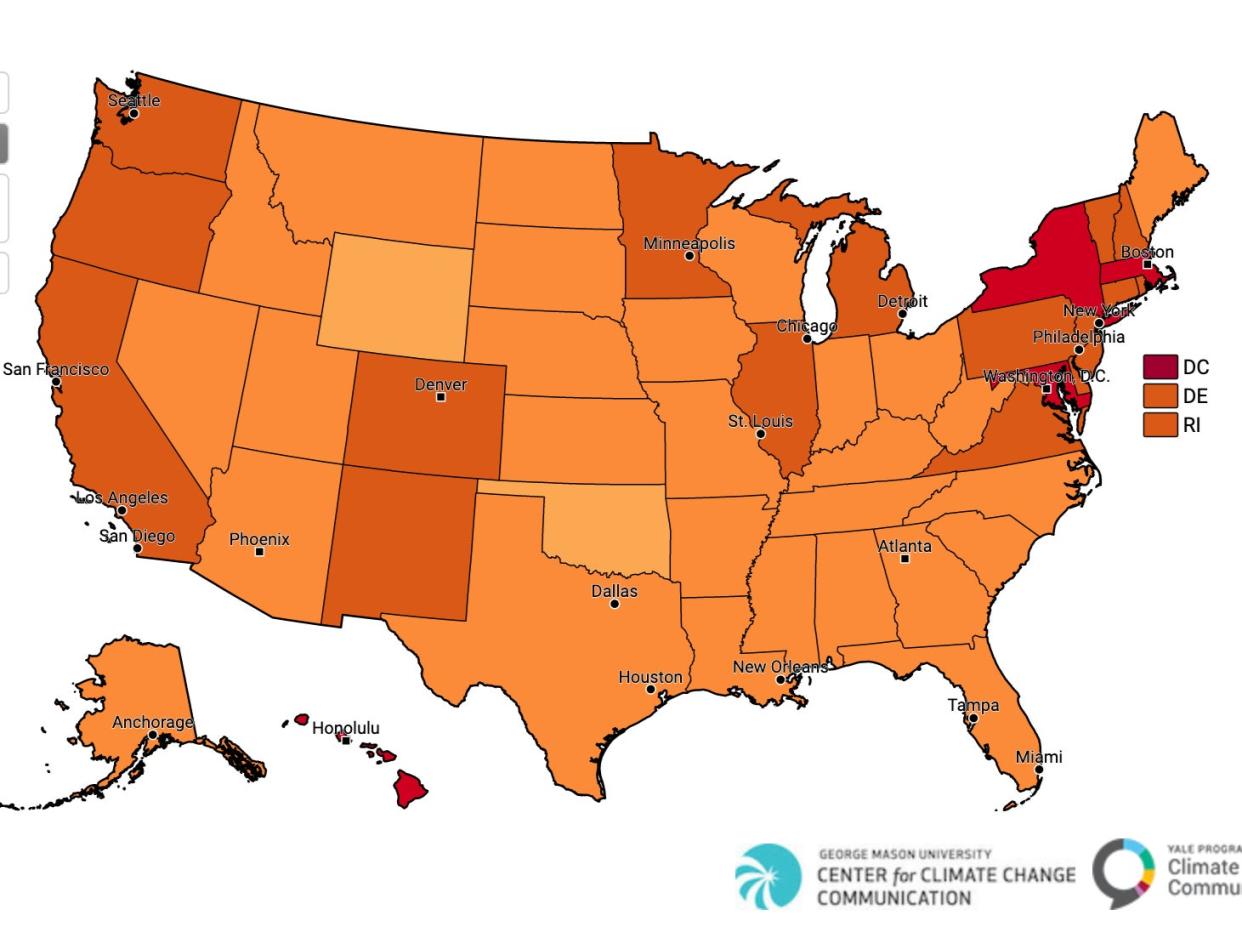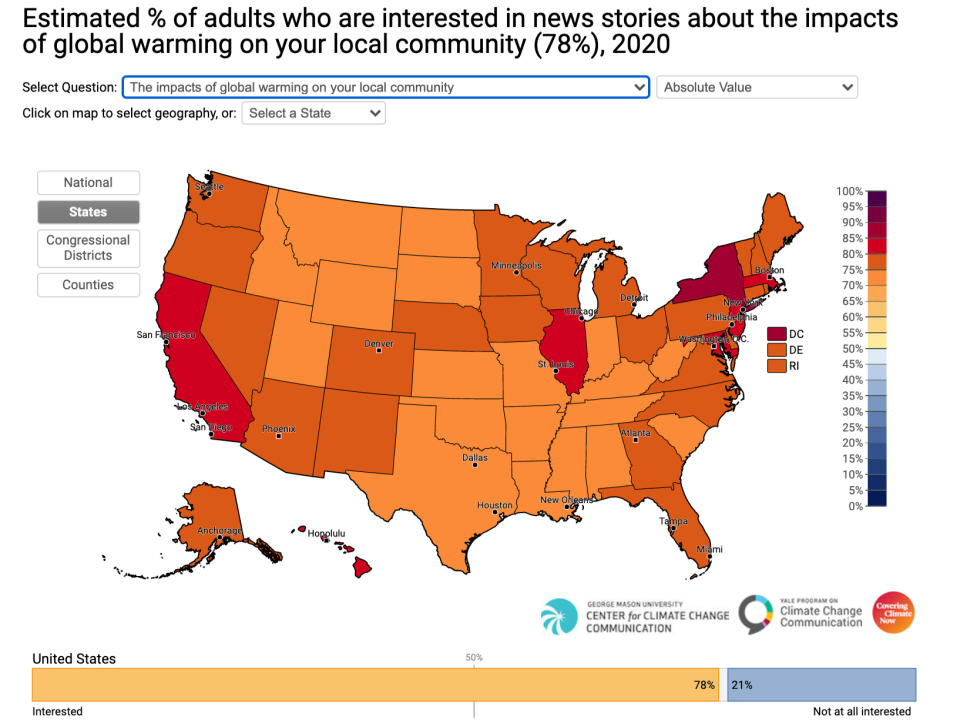Three-quarters of Americans want to know more about presidential candidates’ plans to tackle global warming: poll

Three in four Americans want to know more about presidential candidates’ plans to fight global warming, according to data compiled by Yale University.
With just over a month to go until election day, an average of 76 per cent of US adults expressed interest in news stories about the plans that President Donald Trump and Democratic nominee Joe Biden intend to deploy in response to the climate crisis.
Maps were published last week based on a survey gauging Americans’ interest in climate news by the Yale Program on Climate Change Communication,. The data was compiled from a national survey of more than 5,700 respondents this summer.
At a state level, interest in the presidential candidates’ climate change policies was above the national average in certain regions, particularly in the northeast - New York (83 per cent), Massachusetts (83 per cent), New Jersey (80 per cent ) and Maryland (80 per cent).
In the west, where states have suffered historic wildfires and soaring temperatures driven by the climate crisis, residents were also interested in the candidates’ plans. In California, 80 per cent of respondents expressed interest, and 79 per cent in Oregon and Washington states.
In the swing states which are likely to decide the next president, interest remained high on the candidates’ climate plans but slightly dipped in those in the south.
Arizona was two points off the national average (74 per cent) and the same in Florida. In Georgia, it was 73 per cent and slightly lower at 72 per cent in North Carolina.
Wisconsin saw 75 per cent interest, rising by a percentage point in Michigan. Minnesota and Pennsylvania both tied with 77 per cent expressing in interest in new stories about the candidates’ climate change policies.
Climate change is only one of a number of pressing issues for Americans as they go to the ballot box this year.
However a study by the Pew Research Center in April found that the number of Americans who say global climate change is a major threat to the country jumped from 44 per cent around a decade ago to 60 per cent in 2020.

But the level of concern is split along party lines and mostly comes from Democrats while Republicans’ views on the issue remain largely unchanged.
The new Yale study also found that interest is high across the US for news stories on a variety of climate issues.
On whether global warming is or is not happening - 74 per cent were interested and 25 per cent were not interested at all. (Some 97 per cent or more of climate scientists agree: climate-warming trends over the past century are extremely likely due to human activities, NASA reports.)
Some 77 per cent said they would read news stories on the causes of global warming.
According to the survey, 78 per cent were interested in the impacts of global warming on their local community, and the same percentage of people on the impacts of global warming around the world.
The highest percentage of respondents (79 per cent) were interested in new stories about the response of the US government to global warming.
For President Trump’s re-election campaign, the Republican party has recycled its 2016 platform that says the climate crisis will be best solved by the market and tech solutions.
The GOP platform also states that "climate change is far from this nation’s most pressing national security issue. This is the triumph of extremism over common sense, and Congress must stop it."
The recycled platform underlines how much President Trump has achieved in curbing plans to tackle the crisis. The platform references plans to withdraw from the Paris climate agreement and roll back aspects of the Clean Water Act and Clean Air Act. On these, Mr Trump made good on the promises.
In mid-August, Mr Trump's re-election campaign posted his second-term agenda, titled "Fighting for You!" The brief document made no mention of the climate or environment but noted that: "Over the coming weeks, the President will be sharing additional details about his plans through policy-focused speeches on the campaign trail."
During a meeting earlier this month in California, Mr Trump made his feelings on climate change clear, telling public officials: “It'll start getting cooler. You just watch.”
In a rare public rebuke of a sitting president, one replied: "I wish science agreed with you."
Mr Trump shot back: "Well, I don't think science knows actually."
In July, Joe Biden released a $2 trillion plan to tackle the climate crisis, with aims to boost investment in clean energy and wind down fossil-fuel power plants by 2035.
Read more
Exiled by Trump, climate scientists lead the resistance against the denier-in-chief
Elon Musk says he may vote for Trump, despite saying climate crisis is existential threat

